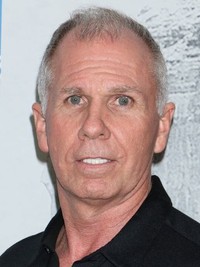Richard Wenk

Screenwriter and director Richard Wenk began his career in the low-budget horror field with Roger Corman's "Vamp" (1986), but eventually worked his way up to one of Hollywood's most successful action writers, with box office hits like "The Expendables 2" (2012) and "The Equalizer" (2014) among his credits. Born in Plainfield, New Jersey in 1956, Wenk developed an interest in film while in high school through a teacher who introduced him to the vibrant revival house scene in New York City. He pursued a degree in film studies at New York University, and began landing production jobs shortly after graduation. While working on a "ABC Afterschool Special" (ABC, 1972-1997), Wenk utilized some of the crew from that project to work on a short horror-comedy film called "Dracula Bites the Big Apple" (1979) that made the rounds on the festival circuit. In 1982, Wenk received a master class in filmmaking when he was hired to serve as assistant to John Huston on the screen version of the hit Broadway musical "Annie" (1982); four years later, independent film pioneer Roger Corman saw a screening of "Dracula" and hired Wenk to write the script for a teen-oriented vampire comedy called "Vamp" (1986). After reading Wenk's finished project, producer Donald Borchers allowed him to also direct the picture, which starred Grace Jones and Chris Makepeace. Though a minor hit, "Vamp" did not lay the foundation for Wenk's subsequent film career; he would spend much of the next decade toiling on scripts for Hollywood features that went unproduced. In 1999, he wrote and directed the United Artists comedy-drama "Just the Ticket" with Andy Garcia and Andie MacDowell, which received an uncredited edit by Francis Ford Coppola; the picture went largely unseen, and his next turn in the director's chair, the supernatural thriller "Wishcraft" (2002), went directly to home video. Two decades of work in the film industry finally paid off in 2006 when director Richard Donner made Wenk's thriller "16 Blocks" with star Bruce Willis. The success of the picture led to a slow but steady string of big-budget genre films, including a stint as producer on the comedy "The Girl Next Door" (2004) and screenplays for the Jason Statham-led remake of "The Mechanic" in 2011. The following year, Wenk was tapped to pen "The Expendables 2" (2012), the follow-up to the massively successful Sylvester Stallone action-comedy; Wenk's next effort, "The Equalizer" (2014), which cast Denzel Washington in the vigilante role played by Edward Woodward in the CBS series (1985-1989), was an equally sizable hit and prompted word of a sequel, also with Washington.